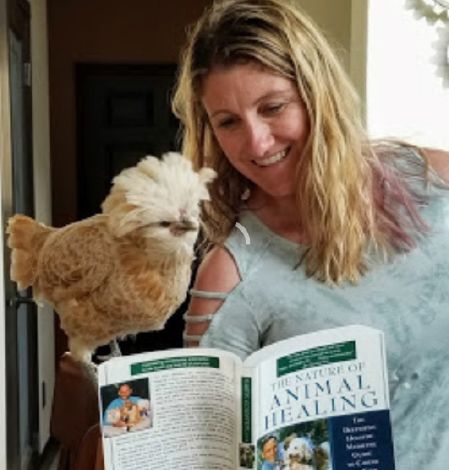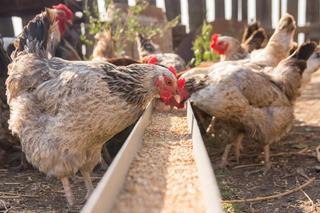How to Create a Chicken-Friendly Garden
Select Safe Plants for Your Hens


There is nothing quite like the joys of gardening. Prepping the beds, tilling the soil, carefully selecting and planting the perfect array of vegetables that will soon adorn your dinner table in a gloriously colorful arrangement.
Your backyard flock is watching the fruitful harvest, biding their time to wreak havoc on your carefully arranged cornucopia.
Incorporating chicken-friendly practices into your gardening routine can cultivate a thriving garden that not only provides abundant harvests but also enriches the lives of your flock. Here are some methods to create a chicken-friendly garden so farmers and feathered helpers can both reap the benefits.
Select chicken-safe plants
The first step for any avid gardener is to plan a trip to the local nursery. Look for sturdy, non-toxic plants that can withstand occasional pecking and scratching.
Some great options include herbs like basil, parsley, oregano, mint, rosemary and sage. Chicken-safe vegetables include kale, cucumber, lettuce, chard, beets, carrots, pumpkin, corn and zucchini.
Peas and beans are delightfully delicious, but the wandering vines can be difficult to keep out of chicken’s reach. Those may grow best in a chicken-free area.
Plants to avoid are daffodils, rhubarb leaves and any nightshade family plants. These can be toxic to your chickens if ingested.
Create protective barriers
Chickens are voracious little foragers and can quickly decimate a garden to dirt. Protective barriers are an absolute must if you want a mature, flourishing harvest. Chicken wire cages around delicate plants can prevent chickens from trampling or pecking at them while still allowing sunlight and airflow.
Laying wire flat across the bed about 3-inches above the dirt will allow young plants to gain strength before being assaulted by any hungry mouths or scratching feet.
Raised beds or containers can also serve as effective barriers, keeping plants out of reach from curious beaks.
Design chicken-friendly landscaping
Incorporating features like dust baths, logs and rocks into your garden design can provide enrichment and entertainment for your chickens. Dust baths help chickens maintain glossy, mite-free feathers, while logs and rocks offer opportunities for perching, snoozing and exploration.
Also include some varied terrain like open spaces for foraging, shady spots for resting, and sheltered areas for protection from predators and harsh weather conditions.
Implement rotational grazing
Dividing your garden into separate sections and rotating your chickens between them periodically will prevent overgrazing and allow vegetation to regenerate, thus promoting a healthier ecosystem.
Cover crops like clover or rye can be planted in areas where chickens have over-grazed to replenish nutrients in the soil and prevent erosion. Plus, it looks very pretty and provides a lovely carpet of green!
Provide adequate water and nutrition
Ensuring access to clean, fresh water at all times is important for keeping well-hydrated chickens. Install waterers or provide shallow dishes in multiple locations throughout the garden. This may even invite guests like finches and butterflies!
Always supplement your chickens’ diet with high-quality feed and protein-rich mealworms to ensure they receive essential nutrients. Don’t rely entirely on foraging.
Manage pest control naturally
Attracting beneficial insects and birds to your garden with native plants, bird feeders, and insect hotels will encourage natural pest control.
Never use chemical-based pesticides and herbicides. These are harmful to both chickens and beneficial wildlife. Instead, explore methods like companion planting and introducing predator insects like ladybugs and praying mantises.
Flowers like sunflowers, beebalm, lavender, saliva, borage, coneflower and dahlias can be planted between the rows to add color and attract pollinators.
Maintain cleanliness and hygiene
Gardens should not be stinky. Regular cleaning and maintenance of your chicken coop and surrounding areas will minimize the risk of disease transmission and maintain a healthy environment for both garden and garden-helpers.
Don’t let anything go to waste! Incorporating chicken poop and kitchen scraps into your garden routine will not only recycle chicken manure but also creates a nutrient-rich compost. This natural fertilizer will work wonders for your plants and improve soil health.
Designing a chicken-friendly garden may involve thoughtful planning, careful consideration, and some creativity, but the effort is well worth the harmonious coexistence between plants and poultry.
About the Author:
Shelby Stone is a writer when she isn’t busy with her chickens, her horse Percy, Mango the parrot and the many other animals in her family.
Tags:Chicken Chatter

Acreage Life is part of the Catalyst Communications Network publication family.
















